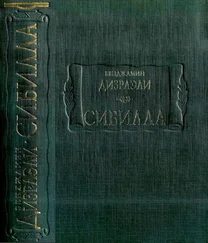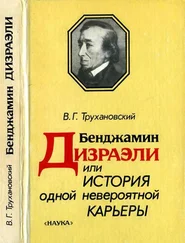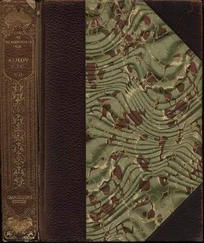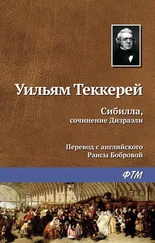'Poor people!' exclaimed the Queen; 'and yet they travel; they wish to improve themselves?'
'Darkush, however,' continued Fakredeen, without noticing the last observation of Astarte, 'was not wrongly informed.'
'Not wrongly informed?'
'No: one of the princes who wished to visit Gindarics was, in a certain sense, of the ancient and beautiful faith, but it was not the Prince of the English.'
'What are these pigeons that you are flying without letters!' exclaimed Astarte, looking very perplexed.
'Ah! beautiful Astarte,' said Fakredeen, with a sigh; 'you did not know my mother.'
'How should I know your mother, Emir of the castles of Lebanon? Have I ever left these mountains, which are dearer to me than the pyramids of Egypt to the great Pasha? Have I ever looked upon your women, Maronite or Druse, walking in white sheets, as if they were the children of ten thousand ghouls; with horns on their heads, as if they were the wild horses of the desert?'
'Ask Keferinis,' said Fakredeen, still sighing; 'he has been at Bteddeen, the court of the Emir Bescheer. He knew my mother, at least by memory. My mother, beautiful Astarte, was an Ansarey.'
'Your mother was an Ansarey!' repeated Astarte, in a tone of infinite surprise; 'your mother an Ansarey? Of what family was she a child?'
'Ah!' replied Fakredeen, 'there it is; that is the secret sorrow of my life. A mystery hangs over my mother, for I lost both my parents in extreme childhood; I was at her heart,' he added, in a broken voice, 'and amid outrage, tumult, and war. Of whom was my mother the child? I am here to discover that, if possible. Her race and her beautiful religion have been the dream of my life. All I have prayed for has been to recognise her kindred and to behold her gods.'
'It is very interesting,' murmured the Queen.
'It is more than interesting,' sighed Fakredeen. 'Ah! beautiful Astarte! if you knew all, if you could form even the most remote idea of what I have suffered for this unknown faith;' and a passionate tear quivered on the radiant cheek of the young prince.
'And yet you came here to preach the doctrines of another,' said Astarte.
'I came here to preach the doctrines of another!' replied Fakredeen, with an expression of contempt; his nostril dilated, his lip curled with scorn. 'This mad Englishman came here to preach the doctrines of another creed, and one with which it seems to me, he has as little connection as his frigid soil has with palm trees. They produce them, I am told, in houses of glass, and they force their foreign faith in the same manner; but, though they have temples, and churches, and mosques, they confess they have no miracles; they admit that they never produced a prophet; they own that no God ever spoke to their people, or visited their land; and yet this race, so peculiarly favoured by celestial communication, aspire to be missionaries!'
'I have much misapprehended you,' said Astarte; 'I thought you were both embarked in a great cause.'
'Ah, you learnt that from Darkush!' quickly replied Fakredeen. 'You see, beautiful Astarte, that I have no personal acquaintance with Darkush. It was the intendant of my companion who was his friend; and it is through him that Darkush has learnt anything that he has communicated. The mission, the project, was not mine; but when I found my comrade had the means, which had hitherto evaded me, of reaching Gindarics, I threw no obstacles in his crotchety course. On the contrary, I embraced the opportunity even with fervour, and far from discouraging my friend from views to which I know he is fatally, even ridiculously, wedded, I looked forward to this expedition as the possible means of diverting his mind from some opinions, and, I might add, some influences, which I am persuaded can eventually entail upon him nothing but disappointment and disgrace.' And here Fakredeen shook his head, with that air of confidential mystery which so cleverly piques curiosity.
'Whatever may be his fate,' said Astarte, in a tone of seriousness, 'the English prince does not seem to me to be a person who could ever experience disgrace.'
'No, no,' quickly replied his faithful friend; 'of course I did not speak of personal dishonour. He is extremely proud and rash, and not in any way a practical man; but he is not a person who ever would do anything to be sent to the bagnio or the galleys. What I mean by disgrace is, that he is mixed up with transactions, and connected with persons who will damage, cheapen, in a worldly sense dishonour him, destroy all his sources of power and influence. For instance, now, in his country, in England, a Jew is never permitted to enter England; they may settle in Gibraltar, but in England, no. Well, it is perfectly well known among all those who care about these affairs, that this enterprise of his, this religious–politico–military adventure, is merely undertaken because he happens to be desperately enamoured of a Jewess at Damascus, whom he cannot carry home as his bride.'
'Enamoured of a Jewess at Damascus!' said Astarte, turning pale.
'To folly, to frenzy; she is at the bottom of the whole of this affair; she talks Cabala to him, and he Nazareny to her; and so, between them, they have invented this grand scheme, the conquest of Asia, perhaps the world, with our Syrian sabres, and we are to be rewarded for our pains by eating passover cakes.'
'What are they?'
'Festival bread of the Hebrews, made in the new moon, with the milk of he–goats.'
'What horrors!'
'What a reward for conquest!'
'Will the Queen of the English let one of her princes marry a Jewess?'
'Never; he will be beheaded, and she will be burnt alive, eventually; but, in the meantime, a great deal of mischief may occur, unless we stop it.'
'It certainly should be stopped.'
'What amuses me most in this affair,' continued Fakredeen, 'is the cool way in which this Englishman comes to us for our assistance. First, he is at Canobia, then at Gindarics; we are to do the business, and Syria is spoken of as if it were nothing. Now the fact is, Syria is the only practical feature of the case. There is no doubt that, if we were all agreed, if Lebanon and the Ansarey were to unite, we could clear Syria of the Turks, conquer the plain, and carry the whole coast in a campaign, and no one would ever interfere to disturb us. Why should they? The Turks could not, and the natives of Fran–guestan would not. Leave me to manage them. There is nothing in the world I so revel in as hocus–sing Guizot and Aberdeen. You never heard of Guizot and Aberdeen? They are the two Reis Effendis of the King of the French and the Queen of the English. I sent them an archbishop last year, one of my fellows, Archbishop Murad, who led them a pretty dance. They nearly made me King of the Lebanon, to put an end to disturbances which never existed except in the venerable Murad's representations.'
'These are strange things! Has she charms, this Jewess? Very beautiful, I suppose?'
'The Englishman vows so; he is always raving of her; talks of her in his sleep.'
'As you say, it would indeed be strange to draw our sabres for a Jewess. Is she dark or fair?'
'I think, when he writes verses to her, he always calls her a moon or a star; that smacks nocturnal and somewhat sombre.'
'I detest the Jews; but I have heard their women are beautiful.'
'We will banish them all from our kingdom of Syria,' said Fakredeen, looking at Astarte earnestly.
'Why, if we are to make a struggle, it should be for something. There have been Syrian kingdoms.'
'And shall be, beauteous Queen, and you shall rule them. I believe now the dream of my life will be realised.'
'Why, what's that?'
'My mother's last aspiration, the dying legacy of her passionate soul, known only to me, and never breathed to human being until this moment.'
Читать дальше







![Мелани Бенджамин - Госпожа отеля «Ритц» [litres]](/books/384861/melani-bendzhamin-gospozha-otelya-ritc-litres-thumb.webp)




